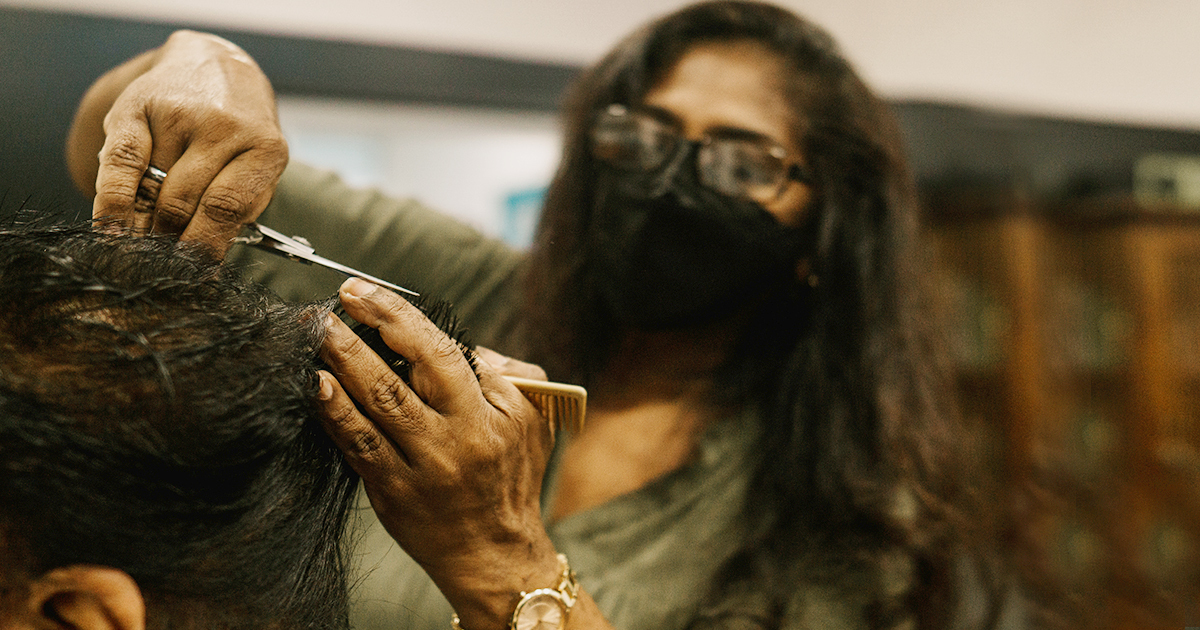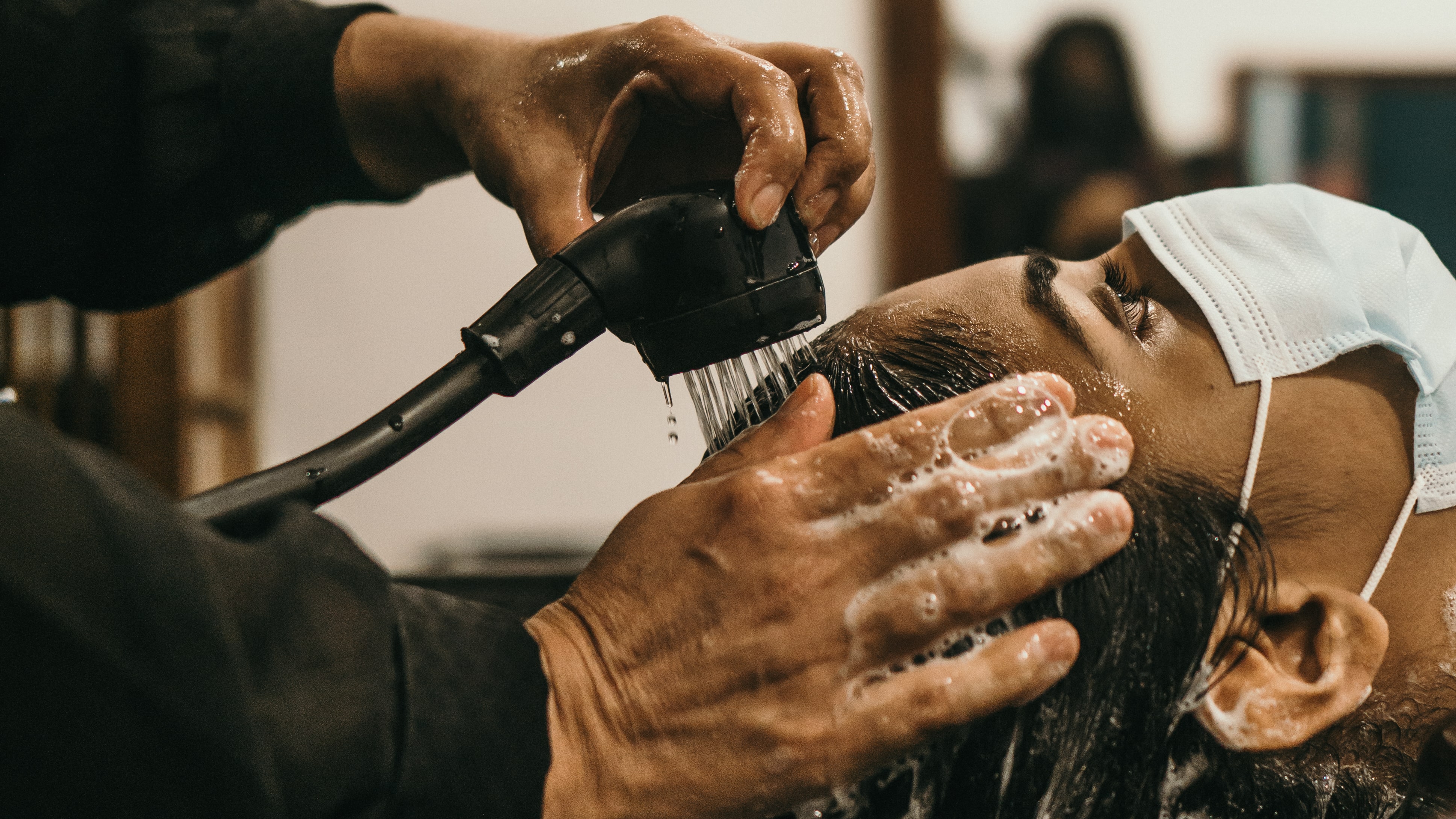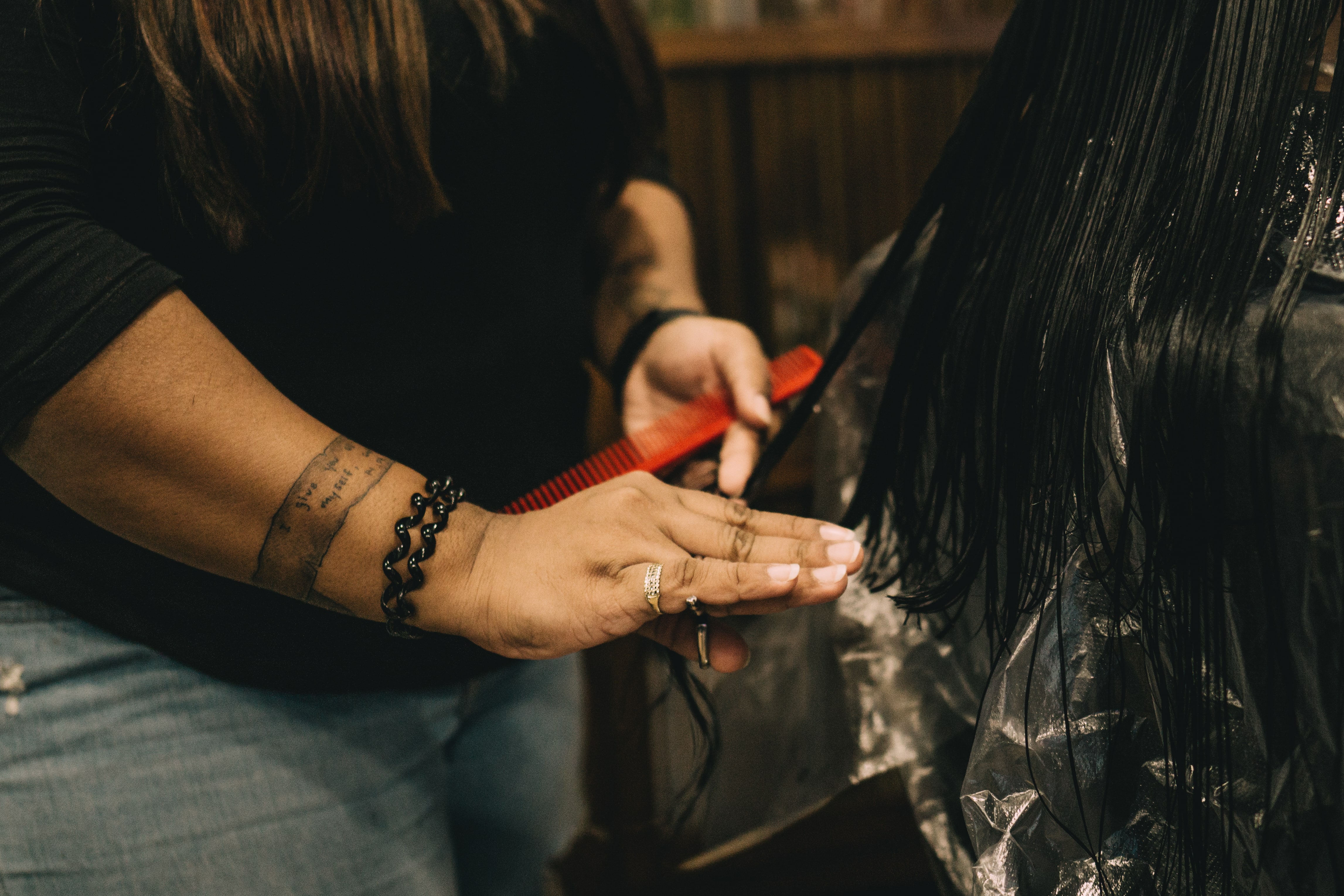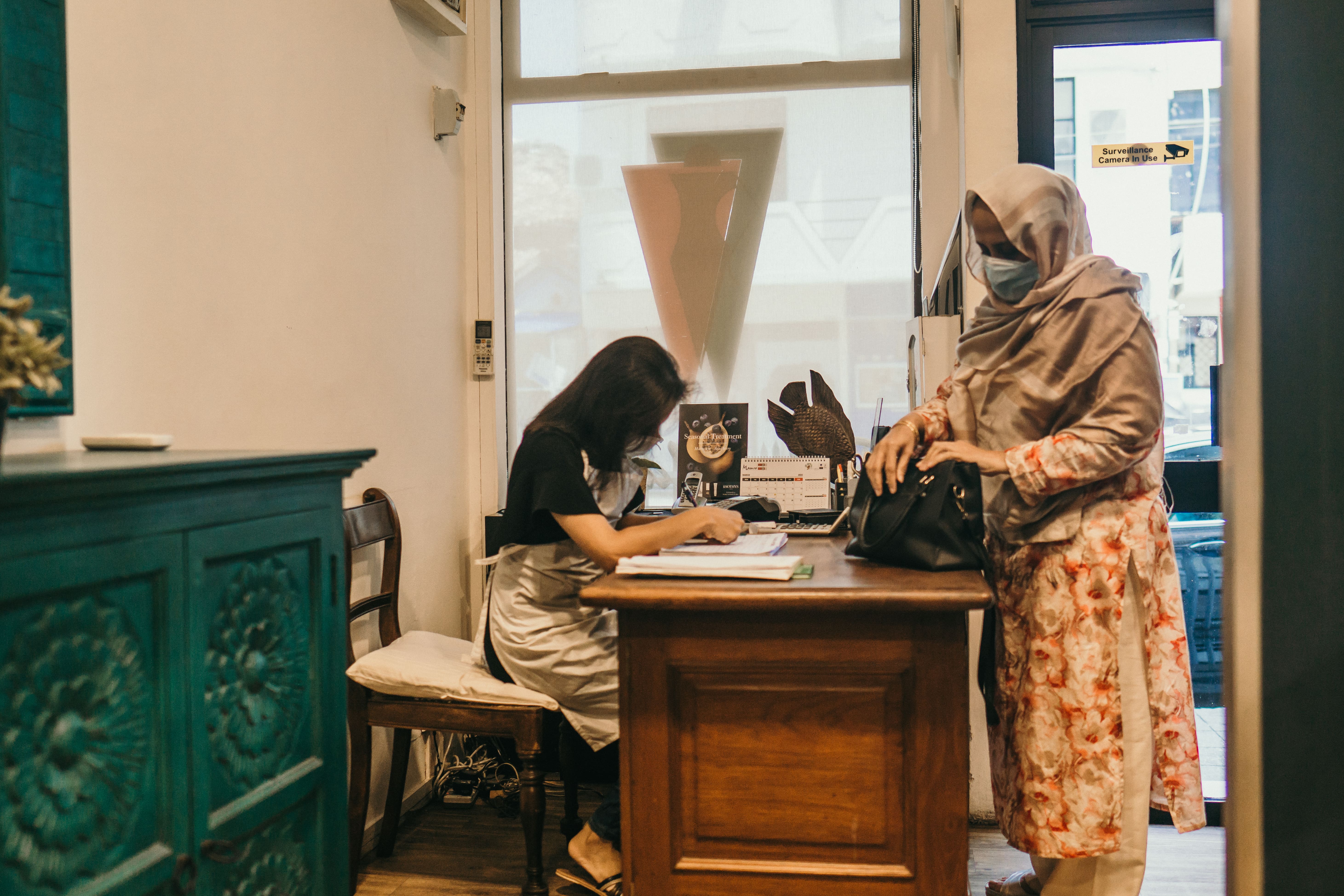
My mum never referred to Salon Naresh by its actual name, so I only ever knew it as “Shobi’s”. She would go to get her nails done at Shobi’s, or call and schedule a haircut at Shobi’s, or take me to get my fringe trimmed at Shobi’s. From the age of four, I sat in a black leather swivel chair, flipping through piles of imported fashion and beauty magazines, watching women be transformed into whomever they wanted to be — at Shobi’s.
I haven’t been to Salon Naresh in years, but Shobi Koch remembered me when I called — “I know your mum! I know you, ” she said. I grew up in the lane adjacent to St. Michael’s Road, where the salon is located, as did my mum. The salon is small but well utilised, with only enough chairs for about six to eight clients at a time. I remember that it always smelled good and that most of the staff knew you by name. It’s why most of Shobi’s clients came back to her.

Essential Services
For a lot of small salons, it is this intimacy that has kept them afloat over the course of the pandemic. Sue Wickramaratne, founder and owner of Sue’s Salon, had to adapt quickly and carefully to the newly-introduced COVID-19-induced restrictions. With one branch at Iceland Residencies in Colombo 3 and another adjoining her home in Nawala, Sue found it was the clients she had worked with for years that were willing to adapt alongside her.
“It was not smooth and easy, it was not very good at the beginning [of the pandemic], but we just kept going,” she told me. “Because we had the [salon] at the house, people preferred to come there. So we started working at the one at the house, just my daughter and I, and [the clients] felt a bit safe, so we managed that. And then some of the clients wanted us to visit their homes, so we did that as well.”
For Shobi as well, it’s been difficult. “Although they say to keep your distance, we can’t work too far away from the client. So we have to be extremely careful,” she said. Now, she thinks they’ve made it through the worst of the pandemic and the resulting loss of business, although it may be too soon to tell. “We had a good December [2021], and anyway, February is not a great month. But people are concerned because there are so many [COVID-19 cases] again.”

What Happens In Vegas
Chatting and venting is an essential part of the process at salons. But while Sue and Shobi both listen and engage very deeply with their clients, they don’t like to gossip. And this is important, because no matter how tame or outrageous the information you share, a salon right around the corner from your house, filled with women you’ve known for years, is a veritable sanctum.
“We make [our clients] feel very comfortable, we talk a lot with them and [try to] be there for them,” Shobi told me. “Right now we can’t, because of the [COVID-19] situation, but we used to offer coffee and magazines. Just pampering them and being extra nice to them.”
Sue also tries to go the extra mile with her clients. “We treat them like family — we remember their birthdays, if they’re going through a bad patch, we stand by them. It’s a personal relationship we have with them,” she said.

Built To Last
While Colombo continues to reinvent itself at breakneck speed, not everything can be replaced with something shinier — and especially not these salons. Something about the nature of the services they provide and their inherent attachment to womanhood and femininity both lived and performed makes their small size and familiarity an unlikely advantage.
Minna Shafi (52) initially started going to Salon Naresh because she lived down the street from the salon. “I got used to [Shobi], and then I moved houses and went to other [salons], but I still felt she was better,” she said. Shafi wears the hijab, and another benefit of the salon is their closed-off ladies-only section. “I was comfortable with her, and I liked what she did. That’s the reason I go back to her. I feel like whenever I go, I know the crowd, they know me.”
When her youngest daughter, Amani Raji (22), turned 14, Shafi started taking her to Shobi’s as well. “From the time I was really small, everyone else used to go there, so I started going too,” Raji said. “I really like my hairdresser [at Salon Naresh] because she knows my style, and she personally connects with me a lot. She’ll ask me how everything is going, how my siblings are, I ask her about her kid and how work is, and [we go] back and forth. It’s very familiar.”

“[Our clients] have become more like friends,” Shobi said. “Our service is a very personalised service, so I think they feel comfortable coming to us because when it comes to hair, we really know their hair types, and they feel quite confident coming to us.”
Having spent nearly 45 years in the trade, Sue’s relationships with her clients have become the most rewarding part of her job. “It feels fabulous,” she said. “At the moment, we have a bunch of young people coming to my daughter, and I used to [work with] their grandmothers — 70% of my clients are like that. It means so much.”
In the case of both Salon Naresh and Sue’s Salon, intimacy and history are strengths neither are afraid to wield. “One thing is that you see the person grow with you, and try new things,” Shobi said. “You need to advise them correctly, not just ask them, ‘What do you want?’ [but] give our suggestions and also make them happy at the same time. It has to be a two-way thing, no?”








